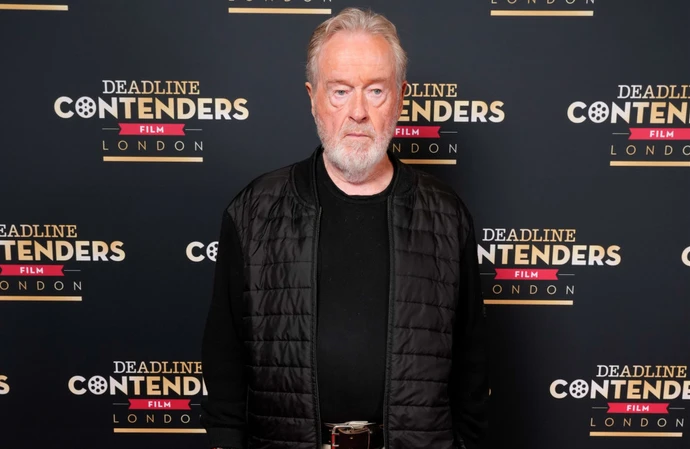Ridley Scott: Blade Runner financiers hadn't heard of Harrison Ford
'Blade Runner' director Sir Ridley Scott has told how the movie's financiers hadn't heard of leading man Harrison Ford before the movie, so he had to convince them the 'Star Wars' actor would become a huge star.

Sir Ridley Scott had to convince Blade Runner's financiers that Harrison Ford would become a huge star - because they hadn't heard of him.
The 87-year-old director cast the 82-year-old actor as his leading man in the 1982 sci-fi movie, after his 'Star Wars' debut as Han Solo, but those financially backing the motion picture weren't sure who he was at first.
Speaking to GQ magazine, Scott said: "Harrison Ford was not a star.
"He had just finished flying the Millennium Falcon in 'Star Wars'.
"I remember my financiers saying, ‘Who the f*** is Harrison Ford?’ And I said, ‘You’re going to find out.’ Harry became my leading man."
Scott admitted there were numerous depths to his new 'Blade Runner' world, and he spent five months exploring potential plots with screenwriter Hampton Fancher, who co-wrote the motion picture alongside David Peoples.
He added: "On 'Blade Runner' I was inventing a whole new world.
"I spent five months with a very good writer, Hampton Fancher, who’d really written a play adapted from the novel 'Do Androids Dream of Electric Sheep?'
"I read the book and felt there were 90 stories in the first 20 pages and it was too complex. Hampton wrote this beautiful story set in an apartment. Loved the dialogue, but I wanted to see what happens when he walks out the door."
Despite Ford leading the cast, 'Blade Runner' flopped at the box office when it was first released, and Scott believes the main reason for that was "industrial espionage", via bad reviews of the film, including one from The New Yorker’s Pauline Kael.
In a roundtable interview for The Hollywood Reporter, Scott said: "It enters the realm of industrial espionage. You’re destroying the subject before it’s out and [Kael] wrote this for the very posh ...The New Yorker.
"I was actually kind of distressed, I mean enraged, so I wrote to the editor, saying, ‘If you hate me that much, just ignore me, don’t write anything.’ I never got a reply."







